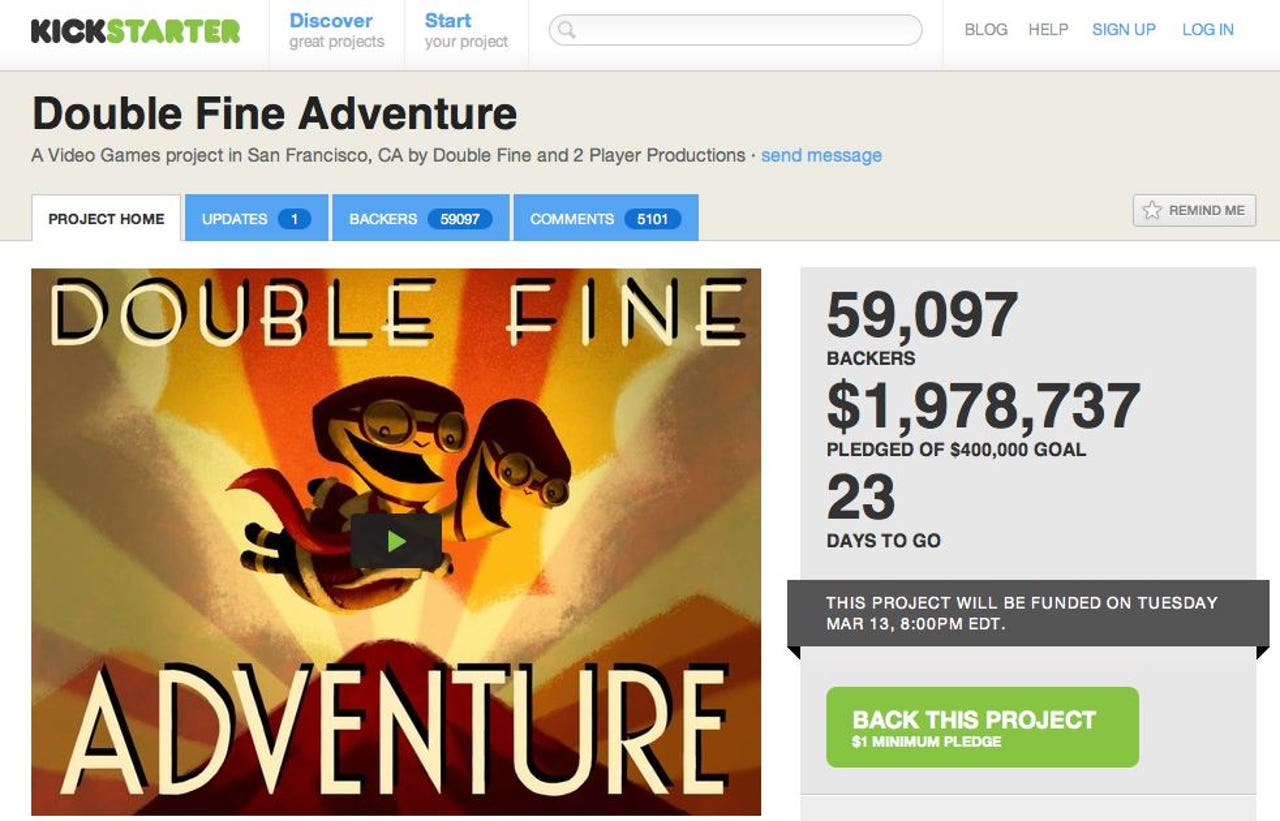Game makers play the Kickstarter game

Over the past week we’ve witnessed a fascinating phenomenon in games. Double Fine, a game developer run by lauded game maker Tim Schafer (Secret of Monkey Island, Psychonauts), asked fans to directly invest in its next big project. Just over a week later, this experiment has raised 1.9 million dollars. How did they manage to do it? Kickstarter.
For the few out there who aren't up to speed on this cash-raising platform, Kickstarter is a web service that launched in 2008 and allows creators of pretty much anything pitch their product to the masses, and hopefully everyday folk, like you and me, will spend our hard-earned cash funding whatever sounds worth our time.
I reached out to Kickstarter and asked for more details on how and why this feature came to fruition. A company rep says the following:
“There's always a value exchange between backers and creators on Kickstarter... Rewards that bring backers and creators closer together or offer behind the scenes access to the creative process tend to be popular. Beyond rewards, backers enjoy the journey as the project progresses and the bragging rights that come with getting a project they believe in off the ground.”
The concept of backers and project creators taking a journey together is compelling, but it’d still be interesting to know just how much those rewards play into how much cash the average person is willing to fork over. To use a personal anecdote, I was tempted to give $100 to the Double Fine project just to have my name included in the final product’s credits. But, with a new baby and the expenses associated with that, I decided to stick with pledging $15 instead (which makes me a responsible parent and secures me a copy of the game when it comes out.).
So, if you have an idea for a game or a gamification approach to something else, is Kickstarter something you'd consider to raise the money needed for your project? By offering one-of-a-kind support tiers with special real-world and/or virtual prizes (which fans would hopefully race each other to take advantage of first), it's possible to make even the funding of a game into a game itself.
